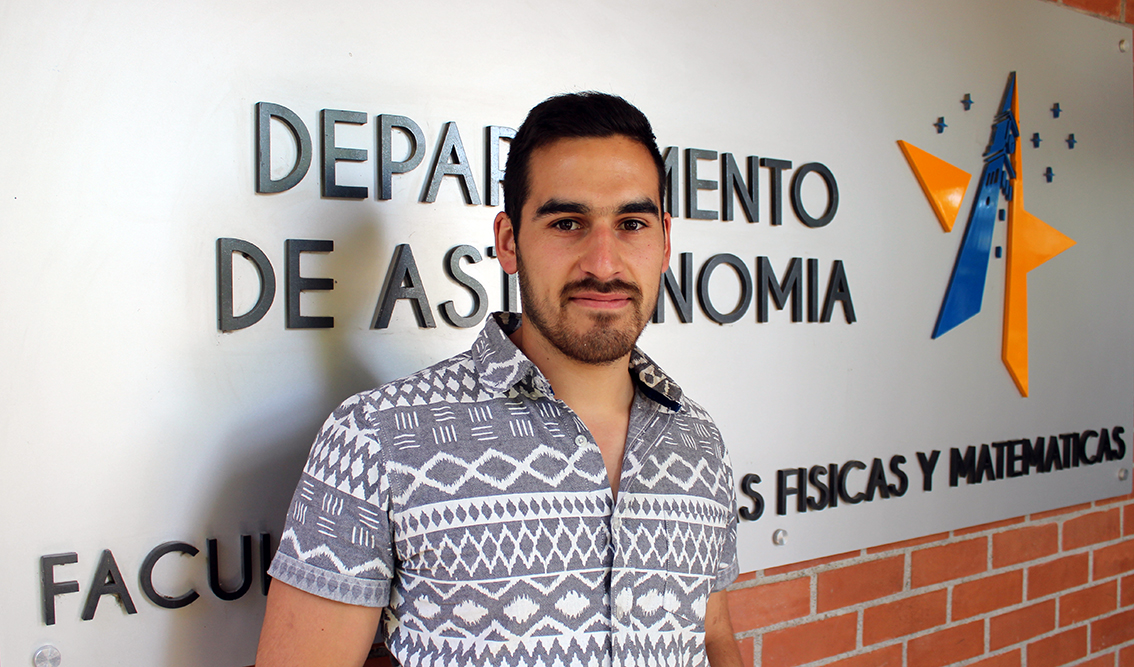
Student from Faculty of Physical and Mathematical Sciences to pursue PhD in Germany
Joaquín Zamponi, an MSc student in the Theory Group of Universidad de Concepción's Astronomy Department, has been selected to pursue his PhD at Germany's International Max Planck Research School (IMPRS). Zamponi commented: "Initially, 341 applications from 50 countries were received, with only 45 candidates shortlisted and invited for the IMPRS Recruitment Workshop (25-27 February) at the Max Planck Institute for Extraterrestrial Physics, Graching". Hence, for three years he will collaborate with the scientific community, particularly in the astrochemistry and radioastronomy, conducting synthetic observations of protostellar disks for comparison with actual ALMA interferometer observations.
In Garching, Joaquín will work in his PhD supervised by Dra. Paola Caselli and Dr. Bo Zhao in the same institution. "Professor Caselli is a leading expert in astrochemistry with near three decades of experience. Because of this, for me it is a great success to work under her supervision. Professor Zhao is an expert in numerical simulations that includes magnetohydrodynamic effects. Their work represent the cornerstone of my thesis. Once the program starts, I will be part of Center of Astrochemical Studies (CAS) in MPE", Joaquín Explained.
Currently, Joaquín is part of the Theory Group of the Astronomy Department as researcher and MSc student and said: "My contribution lies on the astrochemical and observational studies of massive star formation regions. It is important to stress the constant support to stundents from professors of the group. Thanks to this I was able to reach the needed contacts in order to apply for the PhD, without the support of my supervisors, Domink Schleicher and Stefano Bovino, the path to a successful application would have been harder."
The MPE is located alongside the Max Planck Institute for Astrophysics (MPA) and the European Southern Observatory (ESO). These institutions host over 200 international researchers working across multiple branches of astronomy. "Starting from the lowest point and being enrolled among such researchers allows me to gain scientific experience. The research workflow in the campus is exceptionally intense, with regular seminars and international guests invited who you can talk with when any question arise during thesis development. At the end, being part of the scientific community to me is one of the highest achievements to date, and I hope to meet its high standards", Joaquín concluded.
Celeste Burgos Badal
Astronomy Department Communications




